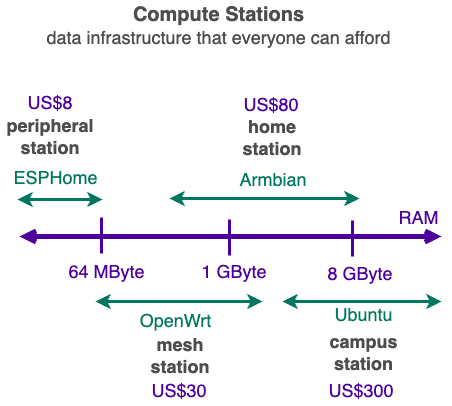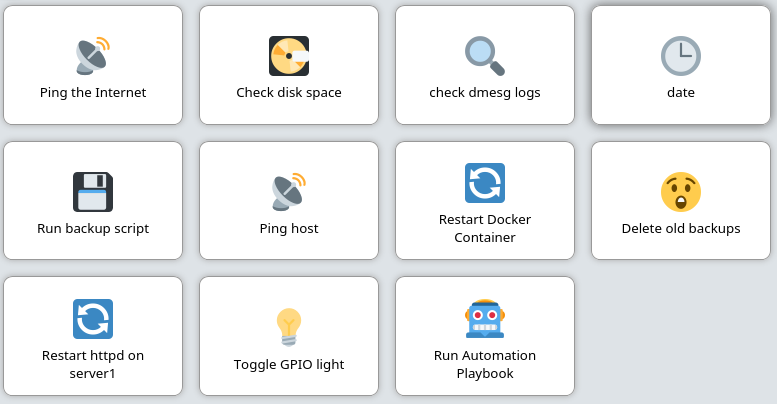Compute Stations owned by different people are designed to operate together as a team to provide large scale backend computing to the Personal Consoles frontend interface running on their mobile phones.
The aim is an flexible design that turns as many as computing devices into compute stations as possible. Giving people access to computing hardware that they have PHYSICAL CONTROL of and sort out their computing efficiency later - giving data ownership back to the people is the priority.
Compute Stations are computing hardware design to be operated by ANYONE independent of their skill and wealth.
Compute Stations are well define computing devices for hosting Disposable Nodes.
There are currently 4 types of compute stations:
- Peripheral Station - sensors and actuators
- Mesh Station - network and storage
- Home Station - private compute
- Campus Station - shared compute

They allow you to distribute your information assets in locations that make the most sense.
1. Deployment
Although the 64-bit x86 computers are generally more powerful, an increasing number of ARM computers are also supported, as lower power and lower cost alternatives in a lot of use cases.
There are many ways to deploy Compute Stations, all you need is a physical or virtual machine that can run Ubuntu Server (20.04 or 22.04) - which means most computers on earth!
- Repurpose spare laptops or second hand desktop computers - Boot up using USB stick.
- Run inside existing Windows or macOS or Linux computers - Using Virtual Machines.
- Install on non Intel/AMD computers (from [Raspberry Pi to IBM Z Mainframe) - Using ISO Images.
Once you have got a newly installed Ubuntu Server online, you just need to download ONE publicly published script, run it and your Ubuntu will be come a Home Station. Yes, it is that simple.
2. Turnkey Systems
You can either build it yourself or have someone build it for you.
